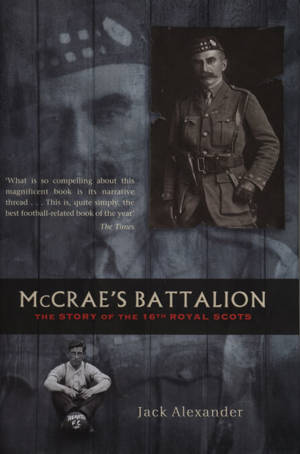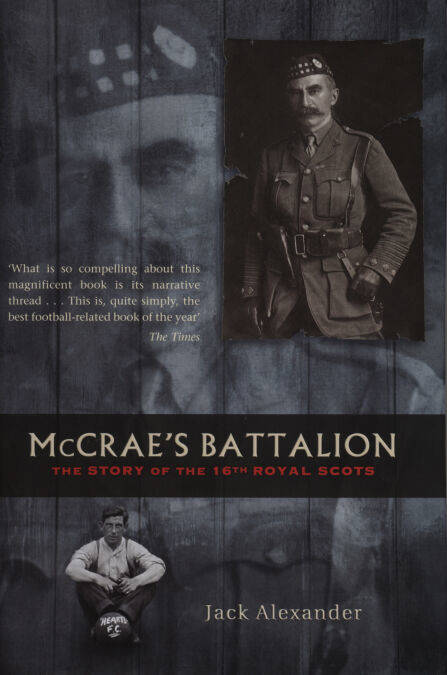
Bedankt voor het vertrouwen het afgelopen jaar! Om jou te bedanken bieden we GRATIS verzending (in België) aan op alles gedurende de hele maand januari.
- Afhalen na 1 uur in een winkel met voorraad
- In januari gratis thuislevering in België
- Ruim aanbod met 7 miljoen producten
Bedankt voor het vertrouwen het afgelopen jaar! Om jou te bedanken bieden we GRATIS verzending (in België) aan op alles gedurende de hele maand januari.
- Afhalen na 1 uur in een winkel met voorraad
- In januari gratis thuislevering in België
- Ruim aanbod met 7 miljoen producten
Zoeken
€ 9,49
+ 9 punten
Omschrijving
McCrae's Own was the 'Heart of Midlothian Battalion' mentioned all too briefly in Martin Middlebrook's classic book The First Day on the Somme. Raised in Edinburgh shortly after the start of the Great War, it was perhaps the finest unit in Lord Kitchener's volunteer army - a brotherhood of sportsmen, bound together by their extraordinary colonel and their loyalty to a quaintly named Association Football club, the famous Gorgie 'Hearts'. McCrae's were blooded in the Battle of the Somme, losing three-quarters of their strength on the first day alone. The Colonel himself was invalided home. In time the battalion recovered. It came of age at Arras, endured the muddy horror of Passchendaele, and held the line unbroken in the face of furious German attacks on the Lys in 1918. For almost a century their story remained untold. It was all but lost forever. Now, after 12 years of exacting historical detective work, Jack Alexander has reclaimed the 16th Royal Scots for posterity. In this stirring book he draws upon interviews with veterans and a unique archive of letters, diaries and photographs, assembled from the families of more than 1,000 of Sir George McCrae's men.
Specificaties
Betrokkenen
- Auteur(s):
- Uitgeverij:
Inhoud
- Taal:
- Engels
Eigenschappen
- Productcode (EAN):
- 9781845968212
- Verschijningsdatum:
- 17/03/2011
- Uitvoering:
- E-book
- Beveiligd met:
- Adobe DRM
- Formaat:
- ePub

Alleen bij Standaard Boekhandel
+ 9 punten op je klantenkaart van Standaard Boekhandel
Beoordelingen
We publiceren alleen reviews die voldoen aan de voorwaarden voor reviews. Bekijk onze voorwaarden voor reviews.









